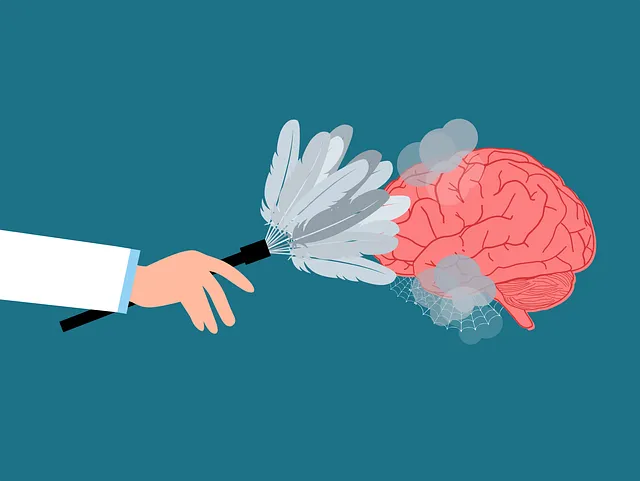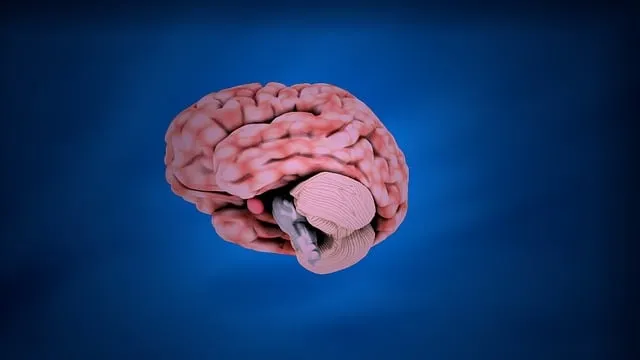Kaiser Permanente Golden focuses on improving mental health diagnosis accuracy through advanced training for healthcare professionals and innovative assessment tools, like their phone-based evaluations. By combining technology with expert knowledge, they offer personalized guidance tailored to individual needs, empowering patients and enhancing accessibility, especially in remote areas. This approach leverages AI algorithms for efficient data analysis, incorporates stress reduction methods, and promotes continuous professional development, ultimately leading to better patient outcomes.
Mental illness diagnosis accuracy is a critical aspect of patient care, and ongoing efforts are necessary to ensure effective treatment. This article explores various initiatives aimed at improving diagnostic precision, including innovative strategies employed by Kaiser Permanente. We delve into their mental health assessment approach, the integration of technology, and comprehensive training programs for healthcare professionals. Additionally, we discuss patient engagement tactics, highlighting how these combined efforts contribute to better outcomes, especially when accessed through essential resources like the Kaiser Permanente mental health phone number in Golden.
- Understanding the Imperative for Improved Diagnosis Accuracy
- Kaiser Permanente's Approach to Mental Health Assessment
- Integrating Technology for Enhanced Diagnostic Tools
- Training and Education for Healthcare Professionals
- Patient Engagement and Support Strategies
Understanding the Imperative for Improved Diagnosis Accuracy

Mental health diagnoses are crucial for effective treatment and recovery plans, yet improving accuracy remains a persistent challenge. At Kaiser Permanente, located in Golden, Colorado, efforts to enhance diagnosis accuracy have become a top priority due to the significant impact on patient outcomes. Many individuals struggle with mental health issues, often facing barriers to accessing timely and accurate assessments. Incorrect or delayed diagnoses can lead to inappropriate treatments, prolonged suffering, and even adverse effects on physical health.
Given the complex nature of mental illnesses, which frequently overlap and co-occur, precise diagnosis is a daunting task. Kaiser Permanente’s focus on this issue is part of a broader initiative to promote emotional well-being and self-esteem improvement techniques among its members. By investing in advanced training for healthcare professionals and implementing innovative assessment tools, they aim to prevent burnout and ensure that every patient receives personalized care tailored to their unique needs. These efforts underscore the organization’s commitment to revolutionizing mental health diagnosis and treatment accessibility.
Kaiser Permanente's Approach to Mental Health Assessment

Kaiser Permanente, a leading healthcare provider, has implemented innovative strategies to enhance mental health assessment and diagnosis accuracy. Their approach prioritizes patient-centric care through comprehensive phone-based evaluations, utilizing trained professionals who conduct detailed interviews tailored to individual needs. This method ensures that patients receive personalized guidance and support from the comfort of their homes, a particularly valuable service for those in remote areas or facing accessibility challenges.
By leveraging technology and expert knowledge, Kaiser Permanente’s mental health assessment process includes risk factor identification, symptom tracking, and evidence-based stress reduction methods. They also emphasize the importance of positive thinking as a tool for coping with various mental health conditions. Furthermore, the organization provides regular training to its professionals on the latest research in mental health diagnosis, ensuring they stay updated on best practices, including a thorough risk assessment for accurate identification and intervention.
Integrating Technology for Enhanced Diagnostic Tools

In recent years, integrating technology has emerged as a powerful strategy to enhance diagnostic tools for mental health professionals. With the rise of digital platforms, there’s a growing trend towards telemedicine and mobile applications tailored for mental well-being. For instance, Kaiser Permanente, a renowned healthcare provider, offers mental health phone numbers allowing individuals to access professional support remotely. These innovative solutions enable patients to receive assessments and therapy sessions from the comfort of their homes, thereby increasing accessibility and convenience.
By leveraging technology, mental health practitioners can employ advanced assessment tools, such as AI-driven algorithms, to analyze patient data more efficiently. This includes evaluating symptoms, personal histories, and risk factors to provide more accurate diagnoses. Moreover, digital platforms often incorporate Stress Reduction Methods like mindfulness exercises and Compassion Cultivation Practices, which not only aid in therapy but also empower individuals to actively manage their mental health. In addition, the integration of technology streamlines record-keeping and data sharing, benefiting from improved continuity of care, especially when advocating for better Mental Health Policy Analysis and Advocacy at both local and national levels.
Training and Education for Healthcare Professionals

Healthcare professionals play a pivotal role in accurately diagnosing mental illnesses, and continuous training is essential to keep up with the latest research and best practices. Kaiser Permanente’s mental health phone line serves as a valuable resource for both patients seeking support and healthcare providers looking for guidance. Through regular workshops and educational initiatives, organizations like Kaiser Permanente aim to enhance diagnosis accuracy by empowering professionals with the skills needed to recognize subtle symptoms and understand complex presentations.
One effective strategy is incorporating empathy-building techniques into training programs. Developing public awareness campaigns and mental health education programs that target both clinical staff and the general public can significantly contribute to improving diagnosis accuracy. By fostering a culture of open dialogue, these efforts ensure that healthcare professionals are equipped not only with the knowledge but also with the emotional intelligence to connect with patients on a deeper level, leading to more precise assessments and ultimately better patient outcomes.
Patient Engagement and Support Strategies

Improving mental illness diagnosis accuracy involves a multifaceted approach, with patient engagement and support strategies playing a pivotal role. Organizations like Kaiser Permanente, with their dedicated mental health phone numbers in Golden, are leading the way by fostering open communication and empowering individuals to take charge of their mental well-being. Through educational initiatives and accessible resources, patients can gain valuable insights into their conditions and actively participate in treatment planning.
This patient-centric approach extends beyond diagnosis, encompassing strategies such as Mental Health Policy Analysis and Advocacy to ensure equitable access to quality care. Cultural Sensitivity in Mental Healthcare Practice is another critical aspect, addressing the diverse needs of a varied population by tailoring interventions and support systems. Additionally, promoting Self-Care Routine Development for Better Mental Health equips individuals with coping mechanisms and resilience-building strategies to manage their conditions effectively between professional interactions.
Mental illness diagnosis accuracy is a vital aspect of patient care, and continued efforts to enhance this process are essential. As highlighted in this article, various strategies can significantly improve diagnosis rates, such as adopting innovative assessment tools like those offered by Kaiser Permanente, integrating technology, and prioritizing comprehensive training for healthcare professionals. Additionally, patient engagement and support play a crucial role in ensuring accurate diagnoses and successful treatment outcomes. By implementing these strategies, we can strive towards better mental health care, with resources like the Kaiser Permanente mental health phone number in Golden serving as valuable guides for those seeking assistance.






